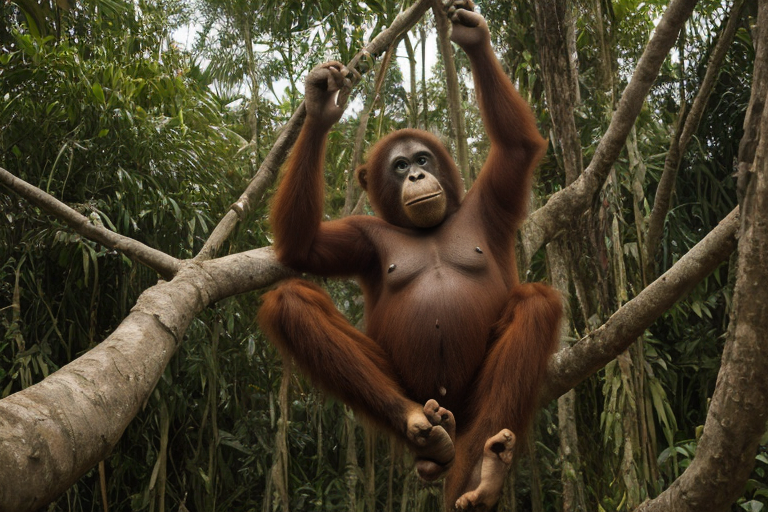The proposal by Malaysia’s Minister of Plantations and Commodities, Johari Abdul Ghani, to gift orangutans to countries that purchase its palm oil has faced strong opposition from conservationists. Critics argue that this move is “obscene” and “hypocritical,” given that palm oil production is a major contributor to the dwindling number of orangutans in the region. Between 2001 and 2019, Malaysia lost over 8 million hectares of forest cover due to palm oil cultivation, according to the World Wildlife Fund (WWF). The organization believes that deforestation rates in Malaysia need to be reduced to zero, and instead, policies against deforestation should be implemented. Orangutans, the largest tree-dwelling animals, have experienced sharp population declines, particularly on the island of Borneo, which is shared between Malaysia, Indonesia, and the sultanate of Brunei. In 1973, Borneo was home to an estimated 288,500 orangutans; however, by 2012, their numbers had dropped by almost two-thirds, to 104,700, and the decline continues. The WWF has stated that orangutan conservation is best achieved by ensuring the protection and conservation of their natural habitats, and no further forest conversion into palm oil plantations is allowed. Conservationists urge the Malaysian government to focus on reducing deforestation rates rather than using endangered species as a commodity for diplomacy.

Critics Slam ‘Obscene’ Palm Oil Gift Proposal as Deforestation Takes Toll on Endangered Orangutans
•
Recent Posts
Advertisement
Advertisement example


Leave a Reply